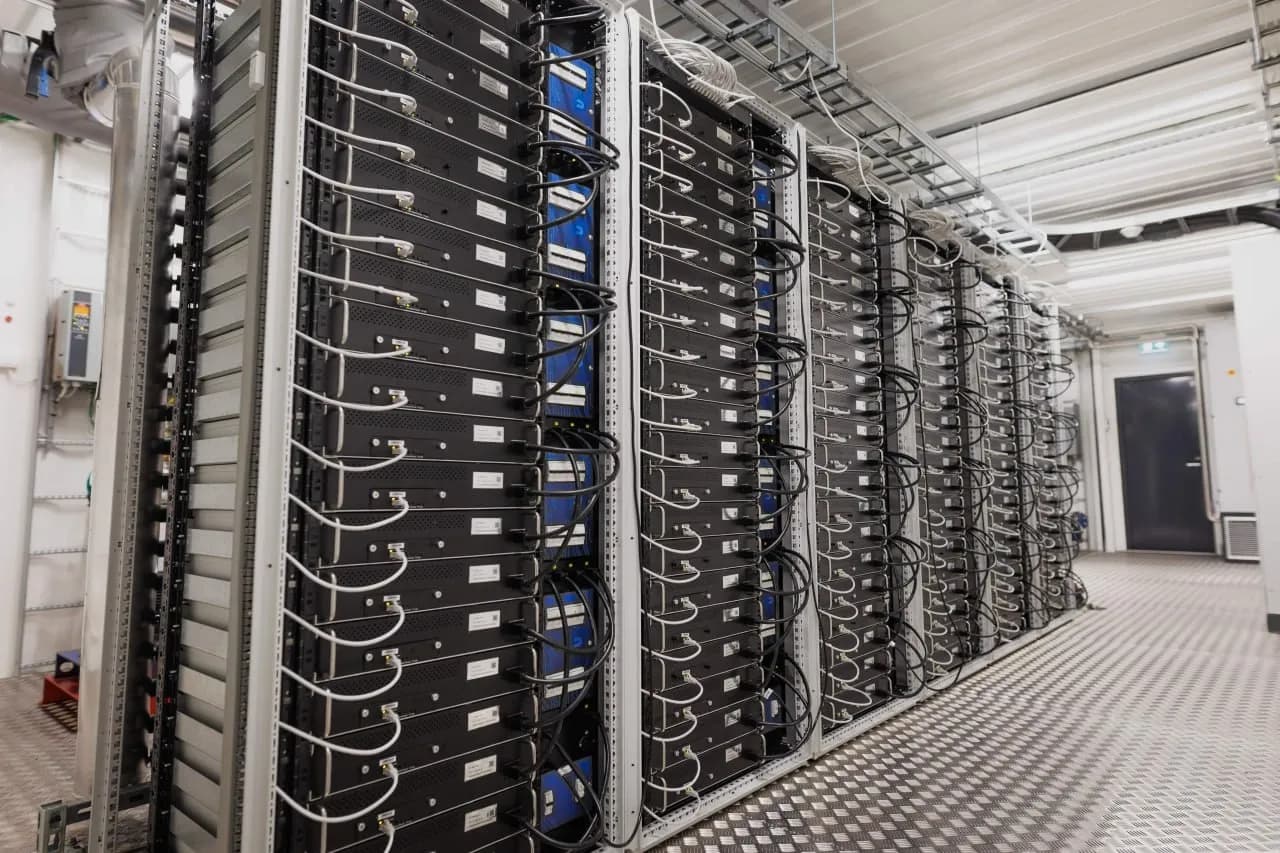Progress for 0 ad
Progress for 1 ad
Progress for 2 ad
Progress for 3 ad


Etenat Awol
Addis Ababa, Ethiopia

Terahash , a German Bitcoin mining firm spun off from the family-owned Klager Group, is preparing to launch operations at its first facility in Ethiopia. The company is raising $5 million to build a 10-megawatt (MW) site near Addis Ababa, set to begin operations within two to three months.
The mining facility, being developed with two local partners, marks Terahsh’s entry into Ethiopia’s budding bitcoin mining industry. If all things proceed as planned, the Company plans to scale operations to 60 MW, which could require additional investment between $ 40 and 60 million.
“This initial 10 MW facility represents a cautious but significant entry point. Hardware is en route, and operations are expected next quarter, pending smooth logistics.” Says Fabian Weber, Terahash's Head of Hashrate, a role that involves leading initiatives in Bitcoin mining and energy infrastructure.
“Success could justify expansion, necessitating substantial further investment,” he told Shega.
Founded as an offshoot of the Klager Group, a 75-year-old, family-owned German manufacturing company, Terahash’s approach to Bitcoin mining combines the use of renewable energy with structured investment models. A direction influenced by Klager’s longstanding focus on industrial efficiency and energy management. The pivot to Bitcoin mining was prompted in part by Europe’s energy crisis that followed the Russo-Ukraine war. When electricity prices in Germany rose by as much as 400%, the Klager Group adopted renewable energy and alternative energy uses, including the integration of Bitcoin miners into its operations.
Instead of selling excess solar energy to the grid at low tariffs, Klager redirected the surplus to power Bitcoin mining rigs, repurposing the heat generated for industrial processes. The model proved both profitable and efficient, and it became the blueprint for Terahash’s operations
Fabian describes the Company’s strategy as two-pronged. In Europe, Terahash focuses on “integrated mining solutions,” optimizing existing energy systems by leveraging the interruptible and heat-generating characteristics of Bitcoin miners. In markets with high electricity costs, such as Germany, only mining is viable when paired with additional revenue streams, like heat sales or grid demand response services. In contrast, Terahash’s “managed mining” division targets locations where electricity is relatively cheap and mining can be a standalone investment, such as the United States, Finland, and now Ethiopia.
Terahash’s expansion into Ethiopia follows a successful pilot investment in late 2023. The company’s Ethiopian site is being facilitated by two locally licensed firms, which are responsible for compliance, permitting, and managing local operations on behalf of Terahash, according to the Company’s Head of Hashrate.
Oversight of crypto-related activities in Ethiopia falls under a complex regulatory framework involving several agencies. The Information Network Security Agency (INSA) oversees cryptographic products and transactions, as mandated by Proclamation No. 808/2013. The Ethiopian Investment Commission (EIC) handles licensing for foreign crypto mining investments. Power is supplied primarily by Ethiopian Electric Power (EEP), which in turn receives payment in foreign currency for its bulk power sales.
Terahash will not be tapping into Ethiopia's nascent crypto regulatory space on its own, instead operating through a licensed local subsidiary. Fabian noted that this approach allows the firm to remain compliant, though he noted some emerging regulatory uncertainties.
“If you have your paperwork correctly in Ethiopia, you're on the safe side.” Fabian highlighted. However, he also flagged emerging risks, including new taxes like a 15.5% VAT on mining and uncertainty around energy pricing and imports.
“We’re entering with our eyes wide open,” he told Shega.
Terahash’s entry comes amid a broader influx of international mining companies into Ethiopia, attracted by its abundant hydroelectric power and low-cost energy. Firms based out of China, such as BIT Mining and BitFuFu, the latter backed by mining hardware giant Bitmain, have recently announced large-scale projects in the country, including 51 MW and 80 MW developments, respectively.
Recent reports suggest that the Ethiopian Investment Commission has granted licenses to as many as 27 crypto mining companies operating in the country. Several foreign Bitcoin mining companies have also signaled plans to initiate operations in Ethiopia, enticed by its abundant power generation and affordable tariffs.
👏
😂
❤️
😲
😠

Etenat Awol
Etenat holds a degree in Journalism and her master's in Public Relations. Previously, she served as a university lecturer and has five years of experience in communications, media, digital marketing, and consulting.
Your Email Address Will Not Be Published. Required Fields Are Marked *